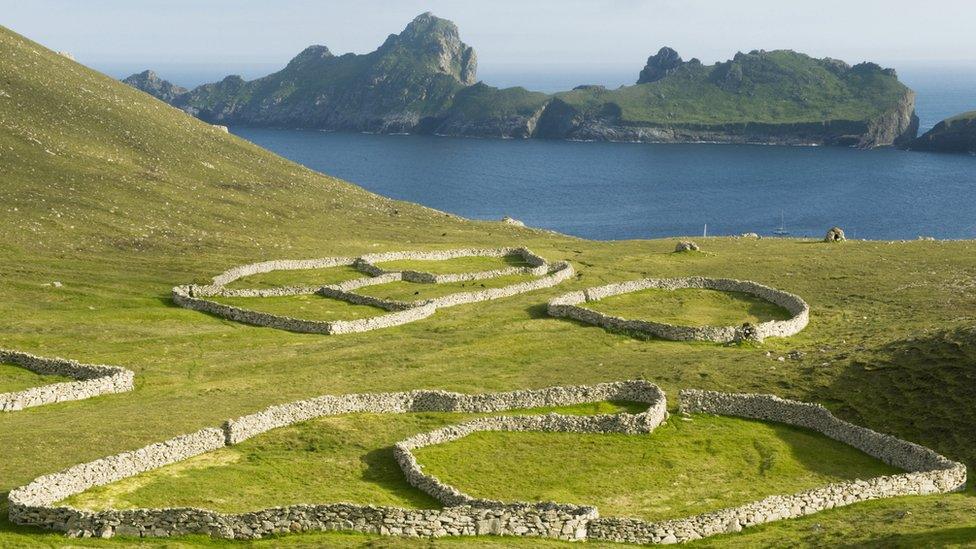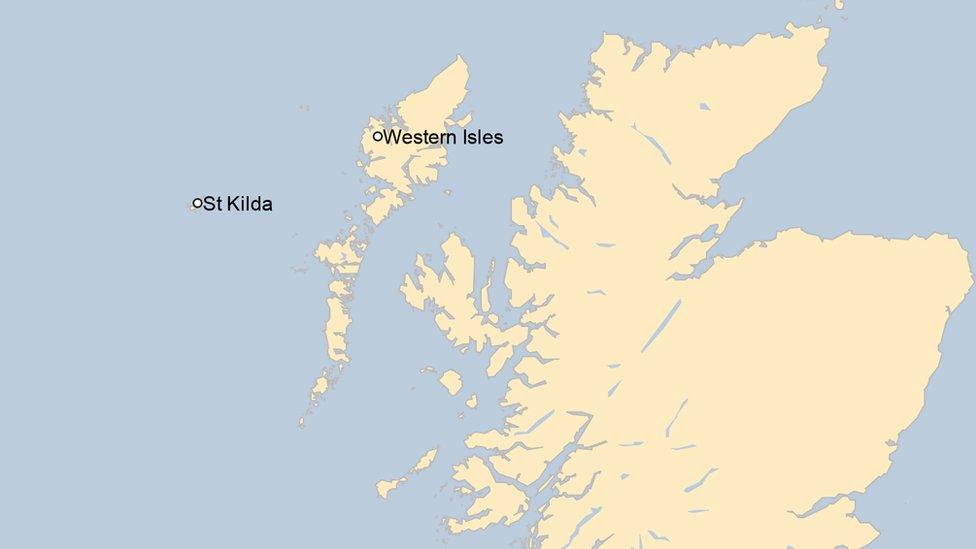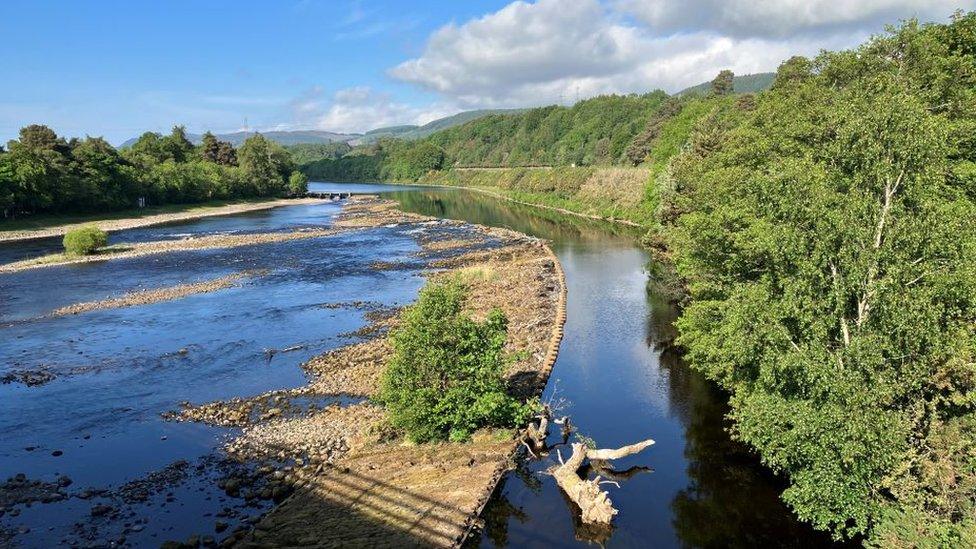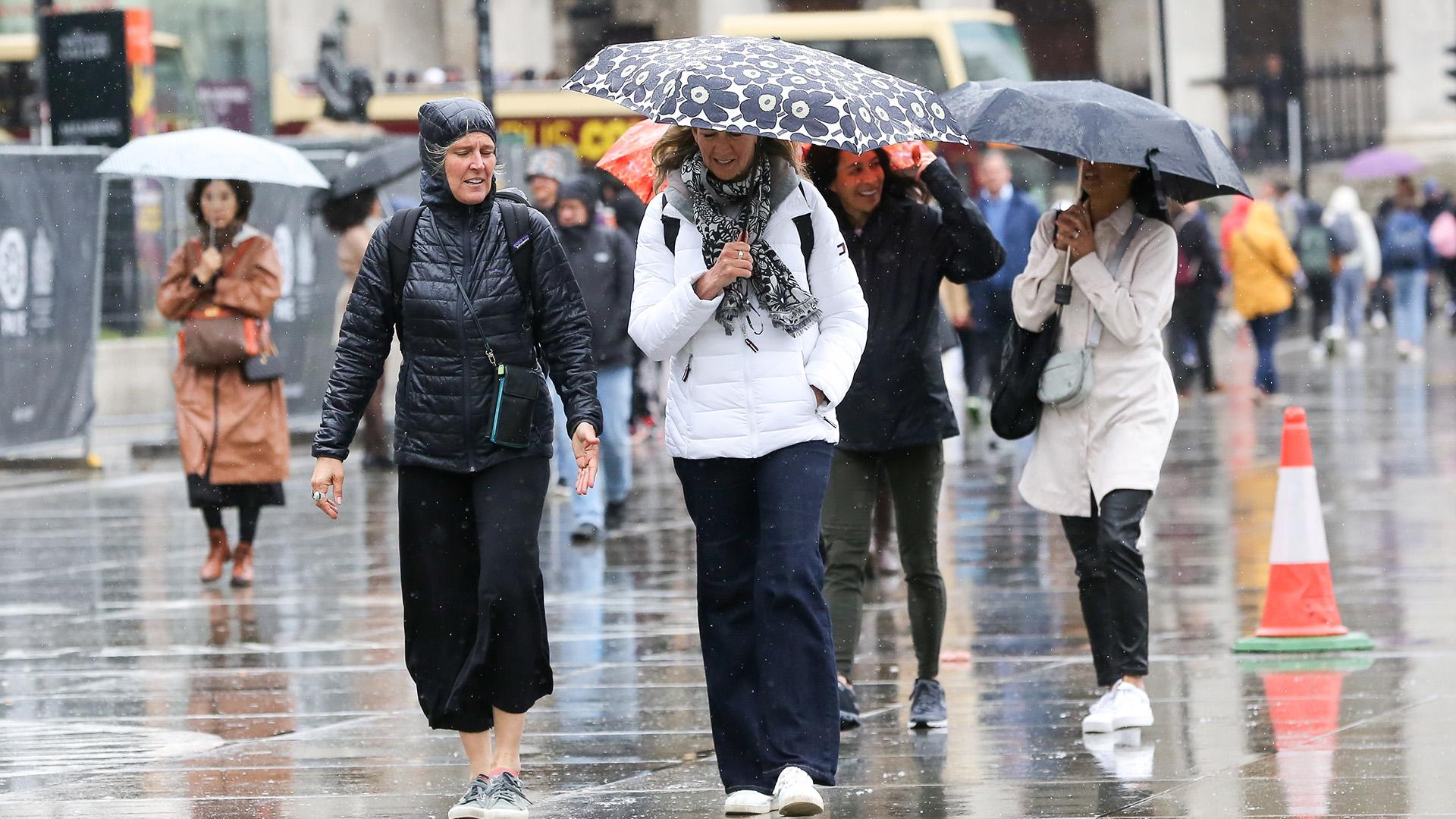Effort to conserve water on remote World Heritage site
- Published

St Kilda's last islanders abandoned the archipelago in 1930
Visitors to the remote St Kilda archipelago have been asked to bring their own drinking water to help conserve the islands' supply.
Water for people who work on the main island of Hirta, including rangers and contractors at a military radar site, comes from natural springs.
But St Kilda, about 40 miles (64km) west of the Western Isles, has had some of its driest weather in years.
Scotland as a whole has been experiencing a heatwave this month.
Last week, the Scottish Environment Protection Agency warned that Scotland was facing a growing threat of water shortages.
It said every part of the country had reached some level of scarcity.
Scientists and conservation volunteers are among those who live on Hirta on a temporary basis. St Kilda last islanders were evacuated in 1930 after life became unsustainable.
National Trust for Scotland (NTS) manages the archipelago, a Unesco World Heritage site, in partnership with a number of organisations.

The small group of islands and towering sea stacs are a popular visitor destination in summer.
NTS said the water supply on Hirta was at one of its lowest levels in 15 years, and has asked visitors to help by drinking their own water.
A spokeswoman said: "Like the rest of the west coast, the Western Isles and St Kilda have had a sustained period of dry weather.
"There is a private water supply on St Kilda and this has dropped significantly over the past couple of weeks, and basic water-saving measures have been introduced.
"These measures have made a significant difference, but we are also asking visitors to make every effort they can to save water and to bring their own water with them."
She added: "There have been periods before on St Kilda when water supplies have been greatly reduced, in particular in 2008.
"But investment in the water infrastructure since then has helped with the management of the water supply."
Related topics
- Published16 June 2023

- Published15 June 2023
